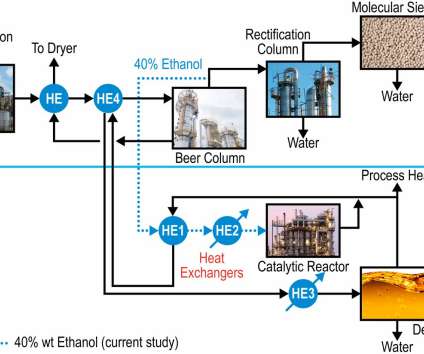Researchers show mixotrophic fermentation process improves carbon conversion, boosting yields and reducing CO2
Green Car Congress
OCTOBER 3, 2016
Consequently, first and second generation bioproduct manufacturing processes are economically challenged, particularly in light of recent low oil prices. One way to mitigate high feedstock cost is to maximize conversion into the bioproduct of interest. In this study, researchers tested how C. Jones, Alan G. Fast, Ellinor D.

















Let's personalize your content